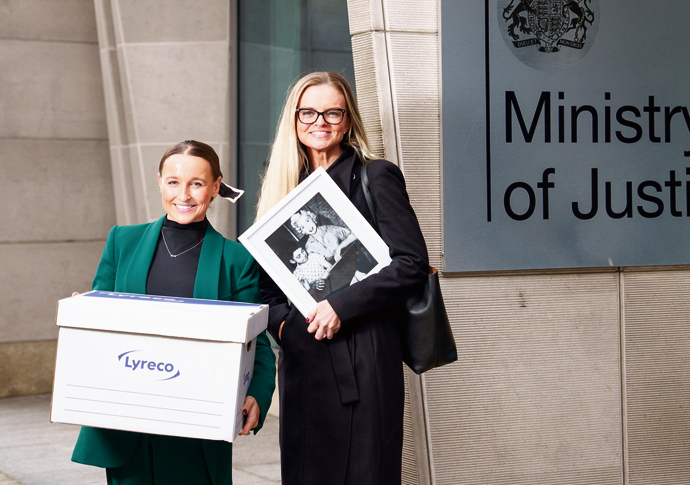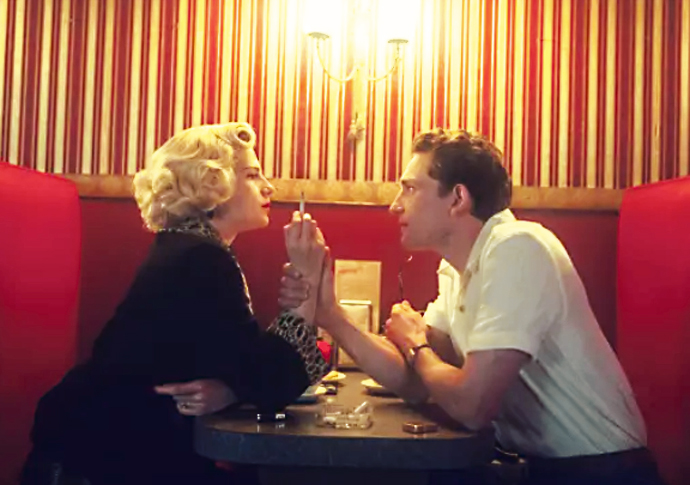Harrington: Why is it so hard to pardon Ruth?
Story of the last woman to be hanged in the UK is a mirror reflecting how far we still have to go in understanding and responding to domestic violence
Friday, 24th October 2025

Ruth Ellis died in 1955
VICTIMS of domestic abuse continue to be failed by the criminal justice system, and the renewed application for a pardon for Ruth Ellis makes that failure impossible to ignore.
The story of the last woman to be hanged in the UK is more than a piece of history.
It is a mirror reflecting how far we still have to go in understanding and responding to domestic violence.
As the 70th anniversary of her death arrived, her grandchildren were in Whitehall this week with their lawyers with a fresh appeal for justice secretary David Lammy to look at the case again.
Ms Ellis was a Soho nightclub hostess trying to support two children as a single mother when she met racing car driver David Blakely.
Over nearly two years, she was trapped in abusive relationship – assaulted and threatened with death – before she shot him outside a pub in Hampstead in 1955.
Within months she was hanged at Holloway Prison, a case which only hastened the end of the death penalty in this country.
The application for a pardon asks Mr Lammy to consider that she was a victim of “battered woman syndrome” and how this experience was not considered during the trial.
The many plays, TV series – such as ITV’s recent drama A Cruel Love – podcasts and newspaper articles which have revisited the case have shown her to be a victim.

Laura Enston, granddaughter of Ruth Ellis, with Grace Houghton, associate at Mischon de Reya, at the Ministry of Justice on Tuesday
It’s not the only reason why it always seemed so tasteless that she was at one time among the waxworks of killers in Madame Tussauds “chamber of horrors” over in Marylebone Road.
Laura Enston, one of her grandchildren, said: “Ruth’s execution has had a devastating impact on our family… and as grandchildren we have felt these ripple effects.
“We are determined to do what we can to right this historic injustice and honour not only Ruth but all victims of domestic abuse who have been let down by the criminal justice system.”
Modern legal defences such as “loss of control” and “diminished responsibility” recognise the devastating psychological impact of sustained abuse, options that simply did not exist for Ellis.
Historically, royal and posthumous pardons in Britain have been rare and deeply symbolic.
They are usually granted only when overwhelming evidence shows a miscarriage of justice or when society’s moral compass has shifted since the original conviction.
From Alan Turing’s 2013 pardon to the mass pardons of thousands convicted under outdated morality laws, each case reflects an evolving sense of fairness and compassion within the justice system.
Yet, the very need for such measures exposes its limitations – that recognition often comes decades too late, after lives have been destroyed and reputations irreparably damaged.

A Cruel Love, ITV’s recent drama series revisiting the Ruth Ellis case
The Ellis family’s campaign sits firmly within this tradition, seeking not revenge but belated justice and national reflection.
It’s seems so sad that even with updated legislation, victims continue to face disbelief, delays, and dismissive attitudes from those meant to protect them.
Police responses are inconsistent, prosecutions are patchy, and courts still struggle to understand coercive and controlling behaviour.
Too often, survivors are forced to relive their trauma through hostile questioning or to see their abusers walk free due to evidential hurdles and institutional indifference.
The Ellis case is a striking example of how the justice system criminalised women without considering if their actions were born out of desperation and abuse.
But it also forces us to ask whether the system has truly changed.
Today women in similar circumstances are still charged, convicted, and punished harshly for retaliating against their abusers or failing to conform to expectations of the “perfect victim”.
Legal reforms over the decades have softened the edges of injustice, but have not dismantled the structural biases that underpin them.
A pardon for Ruth Ellis cannot undo her death, but it would symbolise an acknowledgment of the cruelty she suffered and the continuing shortcomings of a system that still struggles to see domestic abuse for what it is: a sustained campaign of control and violence.
True justice will not come from symbolic gestures alone, but from a system that listens, protects, and acts decisively for those who live in fear.
Until then, victims will continue to be let down as Ruth Ellis was.